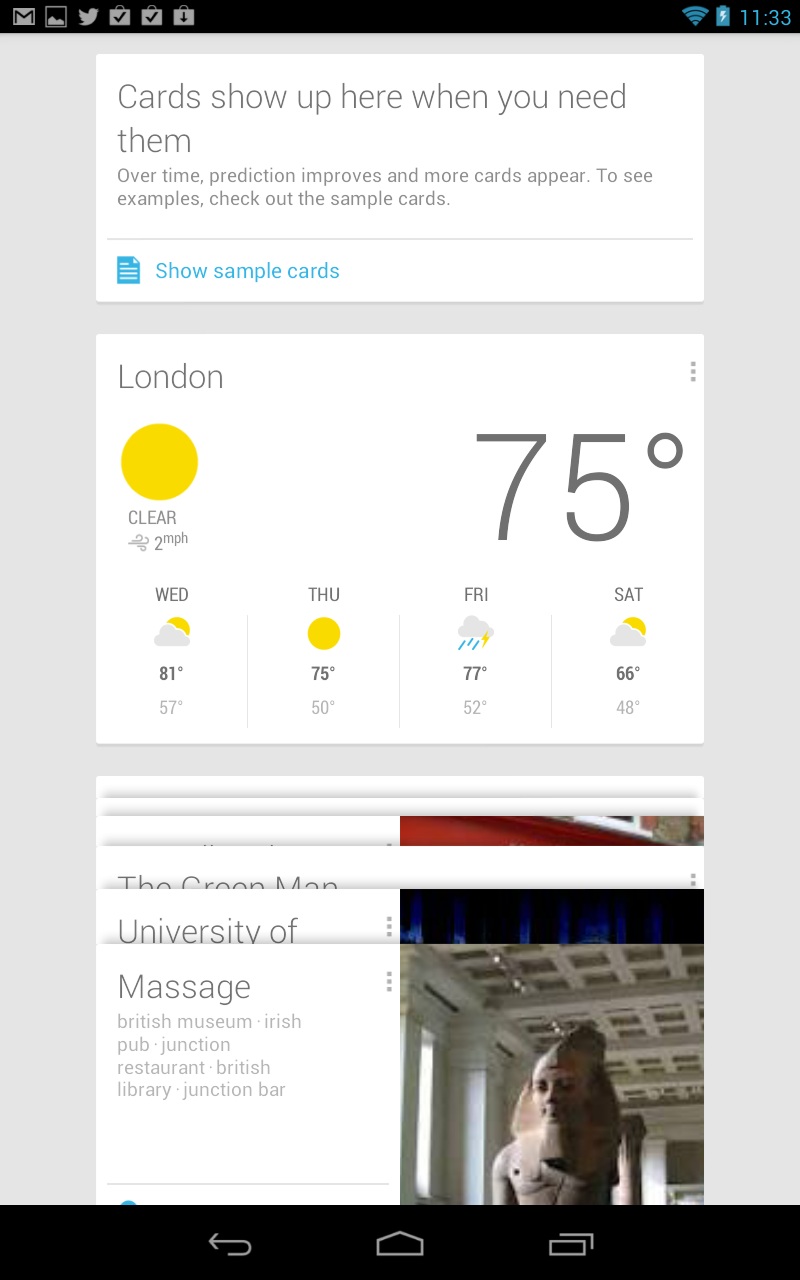Google Android Jelly Bean 4.1 review
The latest version of Android is the most responsive to date and comes with a raft of features including the interactive notifications and Google Now. However, it also marks the end of support for Adobe's mobile Flash Player.
Google's Android 4.1 is a very good update to Android 4.0 because it boasts big improvements under the skin while tweaking aspects that were already very good, such as the notification system.The biggest change for most users will come from the lack of Adobe Flash support but a number of websites have moved to HTML5 and even Adobe has stopped developing the software for mobiles. In our testing we didn't find the lack of Flash a problem, but for those that depend on Flash, Android 4.0 is the only choice.
Google Now
Google's biggest application level change with Android 4.1 comes in the form of Google Now, a personalised search application. Geared towards Americans, Google Now uses a webOS-style card display to come up with results tailored to the user's search history, calendar and location, all of which requires the user to opt-in to the service.
Google Now is much more than a personalised search, the application is a hub that provides information on public transport, flights and language translation based on the user's location. The firm has gone to great lengths to personalise information - so for example at when connected to the internet you can see how long it will take for you to get home from a meeting place. This is going to be particularly handy for business users.

Users will need to spend some time setting up Google Now cards to get the most out of the service, however once the effort is put in, Google Now becomes a good digital assistant.
Google Now is an ambitious service that will improve with use, but at the moment it is still rough around the edges and at times laggy through usually due to connectivity or the Galaxy Nexus feeling the limitations of a dual-core processor. Nevertheless, Google Now is a clear, muted rival to Apple's Siri and it is likely that as the application matures, Google will integrate it further into future versions of Android.
No Adobe Flash support
Users upgrading from previous versions of Android will not be able to download Adobe Flash Player 11 from the Play Store, as this version of the OS is not officially supported.
Given how much both Adobe and Google trumpeted Flash support as a reason to purchase an Android device, the move is a big one as HTML5 is still not widely used. Our advice is that if you depend on a Flash-based application then stick to Android 4.0.
Get the ITPro daily newsletter
Sign up today and you will receive a free copy of our Future Focus 2025 report - the leading guidance on AI, cybersecurity and other IT challenges as per 700+ senior executives
-
 CyberOne appoints Microsoft’s Tracey Pretorius to its advisory board
CyberOne appoints Microsoft’s Tracey Pretorius to its advisory boardNews The threat intelligence leader will provide strategic guidance to CyberOne’s executive team
By Daniel Todd Published
-
 CISA issues warning in wake of Oracle cloud credentials leak
CISA issues warning in wake of Oracle cloud credentials leakNews The security agency has published guidance for enterprises at risk
By Ross Kelly Published
-
 Reports: White House mulling DeepSeek ban amid investigation
Reports: White House mulling DeepSeek ban amid investigationNews Nvidia is caught up in US-China AI battle, but Huang still visits DeepSeek in Beijing
By Nicole Kobie Published